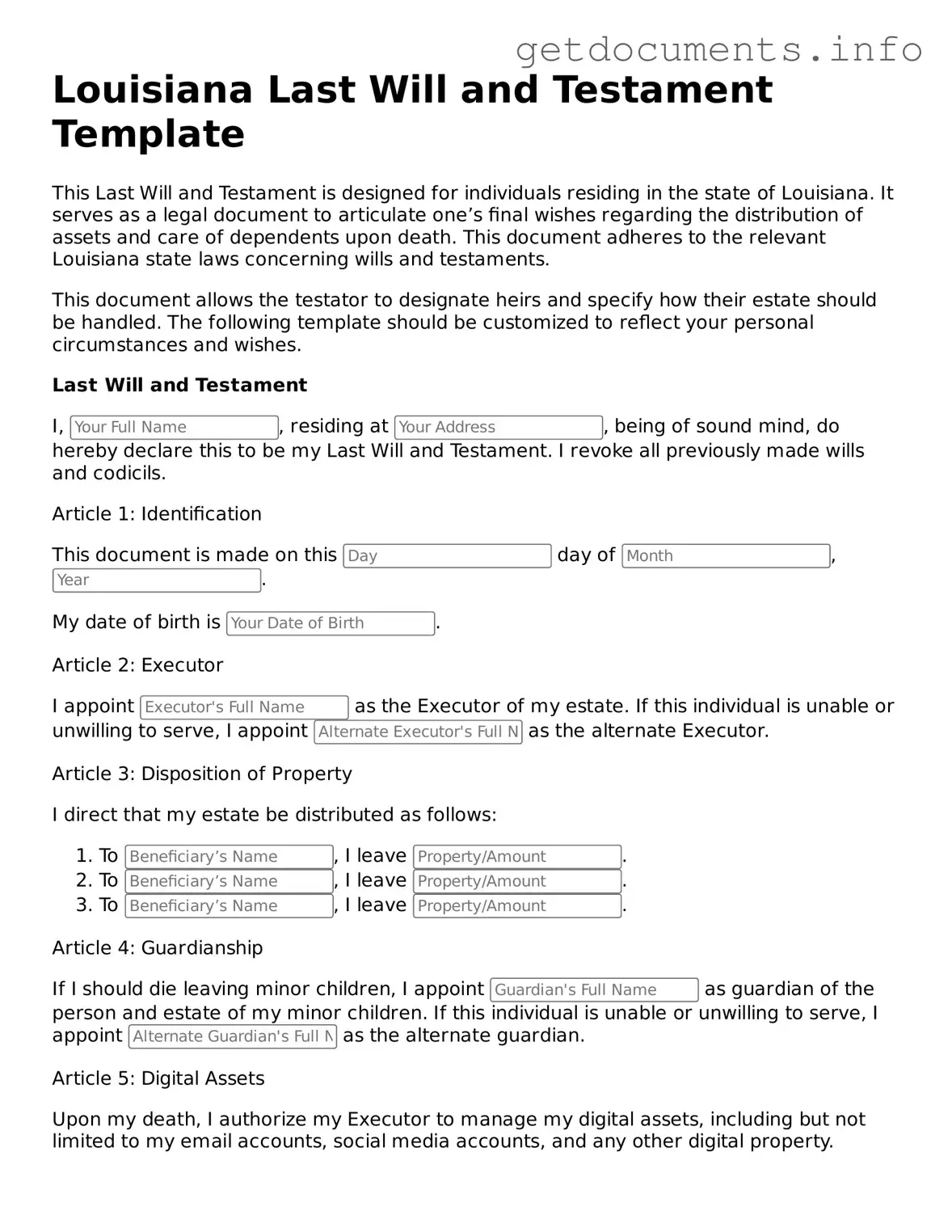Free Last Will and Testament Template for Louisiana
The Louisiana Last Will and Testament form is a legal document that outlines how a person's assets will be distributed after their death. This form ensures that your wishes are clearly stated and legally recognized, providing peace of mind for you and your loved ones. Ready to create your will? Fill out the form by clicking the button below.
Access Last Will and Testament Editor

Free Last Will and Testament Template for Louisiana
Access Last Will and Testament Editor
Got places to be? Complete the form fast
Fill out Last Will and Testament online and avoid printing or scanning.
Access Last Will and Testament Editor
or
⇩ PDF File
